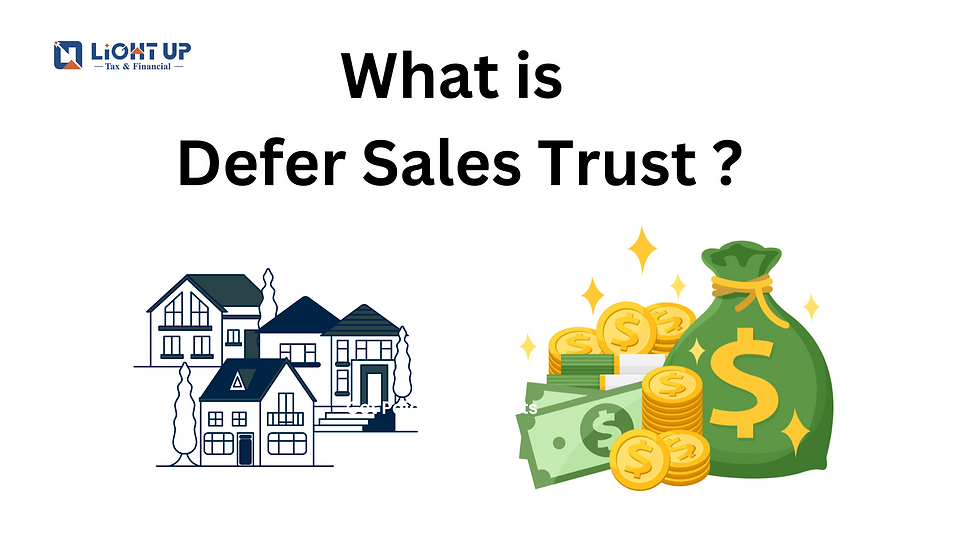What is a Deferred Sales Trust?
- Ocean

- Jan 26, 2024
- 2 min read
Updated: Jan 31, 2024

For the investor who does not want to continue holding investment property or remain in the same business, a Deferred Sales Trust should be considered.
A Deferred Sales Trust™ is a smart and legal way to defer capital gains tax and reduce the overall tax burden on the sale of homes, commercial real estate, businesses, and other highly-appreciated assets.
According to Internal Revenue Code Section 453 , the Deferred Sales Trust provides investors a solution whereby they can defer capital gains upon sale of their assets and redirect the sale proceeds into cash or whichever types of investments suit their needs, income requirements, and objectives.
What is a Deferred Sales Trust?
A Deferred Sales Trust is essentially a legal contract between you and a third-party trust. In this arrangement, you sell real or personal property or a business to the Deferred Sales Trust. In exchange, the trust provides you with a contractual promise to pay a specified amount over a set period of time, typically through an installment sale note or promissory note. This is often called a 'self-directed note,' as you have control over the note's terms. The key benefit of a Deferred Sales Trust is the control it offers over capital gains tax exposure, the terms of reinvestment, and the installment payments that are disbursed from the trust.

Deferred Sales Trusts provide an alternative to 1031 exchanges for deferring capital gains taxes on appreciated assets. Unlike exchange-based tax-deferment methods, Deferred Sales Trusts are an instance of a special kind of sale, called an “installment sale”, which can be used to defer capital gains taxes by breaking up payments on the sale over multiple installments. Unlike other installment sales, by using a third-party trust the Deferred Sales Trust arrangement can be used to reinvest your capital while indefinitely deferring your capital gains tax obligation.
A Deferred Sales Trust is a legal method for deferring capital gains even though you sell your appreciated property instead of exchanging it.
In a 1031 exchange, 1033 exchange, or 721 exchange, you don’t actually sell your property. You swap it. Or, in the case of a 1033 exchange, you are compensated for the loss of your property to disasters like fire, earthquake, or Uncle Sam’s use of eminent domain.
Since in these cases you don’t sell something to buy something else, it makes sense for legal methods to be available for avoiding capital gains taxes. With the above processes, at no point do you really “gain”, so you shouldn’t have to be taxed on any gains.
But when you use a Deferred Sales Trust, or an “installment sale” (as provided for by section 453 of the U.S. Code) to defer capital gains taxes, you do indeed make a sale. The key difference between sales made as part of Deferred Sales Trust arrangements and ordinary sales concerns the method of payment.
With a Deferred Sales Trust, instead of the buyer paying you in one lump sum at the time of sale, the buyer instead agrees to pay you over multiple future installments. Depending on how these payments are organized, you can realize gain gradually over time or can even avoid realizing gain indefinitely.



Comments